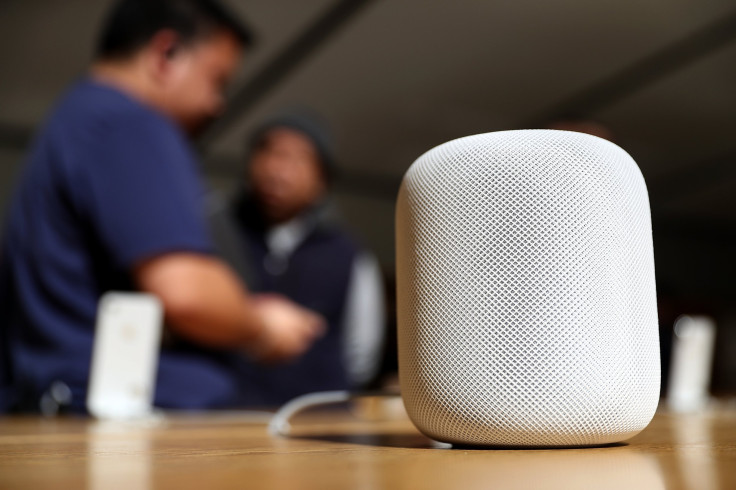Apple's Homepod Failure Is a Reflection Of Its Bigger Problem

Apple's (NASDAQ:AAPL) iPhone revolutionized the cell phone world. It arrived at a time when businesspeople used BlackBerrys -- primarily because they were great for texting -- and most everyone else used flip phones.
The iPhone was shockingly different. It offered apps, a visual interface, and what at the time was a large screen. There was nothing else like it, and thus no easy way for consumers to capture a similar user experience for less money.
The iPad wasn't quite as revolutionary, but it came close. It essentially created the broader consumer market for tablets. The pricey Android and Windows versions that came out in its wake landed with uninspiring thuds until rival device makers realized they couldn't compete effectively with Apple on the high end and went cheap instead to capture a different slice of the market.
What both of those devices (not to mention the earlier iPod) had in common was that Apple set the tone decisively, making any products that followed their lead seem like poor knockoffs. That's not how matters played out in the home speaker/digital assistant market, though. Apple's HomePod isn't a leader. It's an expensive follower that most consumers aren't finding to be worth the price.
Too pricey, too late
Amazon (NASDAQ:AMZN) essentially created the home speaker/digital assistant market when it launched Echo in late 2014, and while it debuted at $199, the devices quickly got cheaper (at least for Prime members) and regularly sold for $99. The company then launched the smaller Echo Dot in 2016, and various versions of the fully capable device have sold for under $50.
The Alexa-powered Echo family of devices had become widely popular by 2016 -- around the time Alphabet's Google launched the Google Home. Both companies have moved their device pricing around, but the core Google Home generally costs $129.99, and Amazon's latest Echo sells for $149, while older versions and Dots go for much less.
Apple's HomePod didn't come out until 2018, when the market had already been established, and it launched at $349 -- more than twice the price of the top-of-the-line models its main rivals were selling. Was the Apple device better than those devices? Maybe in some under-the-hood ways, but not in any obvious way that would make consumers -- aside from the most diehard Apple fans -- want to buy one.
The iPhone and iPad created categories, and Apple has remained a leader in those categories by continuing to deliver top-tier devices (even if its latest updates have been less than exciting). The HomePod was a late-to-market, unrevolutionary product trading on the Apple name.
Homepod closed 2018 with 4.1% market share, according to data from Strategy Analytics, which estimated that Apple shipped 1.6 million smart speakers in the fourth quarter. That reflects its status as a niche device that's selling only to pure Apple loyalists. It's fair to say that the mass public recognized that they could get similar (and maybe even better-liked) products cheaper -- ever after its recent price cut to $299.
A bigger problem
Apple shareholders shouldn't be worried about the relative failure of one product. They should, however, be worried that Apple has been playing follow the leader rather than innovating.
You could argue that AirPods, the company's wireless headphones, are innovative, but they're a niche product at best. Apple's latest round of new-product announcements was focused on subscription services in news, games, and digital video. All are crowded spaces, and while Apple may be able to gain market share by leveraging its hold over some Mac, iPhone, and iPad users, it's hard to see the company becoming a real player in the biggest of those service markets -- streaming video.
The problem with Apple isn't that HomePod failed, it's that Amazon so completely beat it to the punch. Apple used to create categories, but lately, it has been a follower. That's something the company could easily reverse with a surprise "I can't believe they thought of that" announcement, but amazing consumers no longer appears to be a part of Apple's business plan.
This article originally appeared in The Motley Fool.
John Mackey, CEO of Whole Foods Market, an Amazon subsidiary, is a member of The Motley Fool's board of directors. Suzanne Frey, an executive at Alphabet, is a member of The Motley Fool's board of directors. Daniel B. Kline owns shares of Apple. The Motley Fool owns shares of and recommends Alphabet (A shares), Alphabet (C shares), Amazon, and Apple. The Motley Fool has the following options: short January 2020 $155 calls on Apple and long January 2020 $150 calls on Apple. The Motley Fool has a disclosure policy.





















